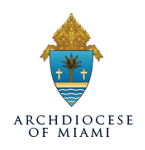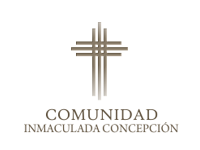 At confirmation we receive the gifts of the Holy Spirit and confirm our baptismal promises. Greater awareness of the grace of the Holy Spirit is conferred through the anointing of chrism oil and the laying on of hands by the Bishop.
At confirmation we receive the gifts of the Holy Spirit and confirm our baptismal promises. Greater awareness of the grace of the Holy Spirit is conferred through the anointing of chrism oil and the laying on of hands by the Bishop.
Confirmation perfects Baptismal grace; it is the sacrament which gives the Holy Spirit in order to root us more deeply in the divine filiation, incorporate us more firmly into Christ, strengthen our bond with the Church, associate us more closely with her mission, and help us bear witness to the Christian faith in words accompanied by deeds. (CCC 1316)
In the Acts of the Apostles we read of the coming of the Holy Spirit on Pentecost. While baptism is the sacrament of new life, confirmation gives birth to that life. Baptism initiates us into the Church and names us as children of God, whereas confirmation calls us forth as God’s children and unites us more fully to the active messianic mission of Christ in the world.
After receiving the power of the Holy Spirit at Pentecost, the Apostles went out and confirmed others, showing confirmation to be an individual and separate sacrament: Peter and John at Samaria (Acts 8:5-6, 14-17) and Paul at Ephesus (Acts 19:5-6). Also the Holy Spirit came down on Jews and Gentiles alike in Caesarea, prior to their baptisms. Recognizing this as a confirmation by the Holy Spirit, Peter commanded that they be baptized (cf. Acts 10:47).
Confirmation Requirements
- Must be a registered parishioner of St. Boniface.
- Two years preparation time is required for children in order to complete the Requirements for Receiving the Sacrament of Confirmation.
- Students receiving this Sacrament must be in grade level 8 and/or 13 years of age or older.
- Successful completion of at least two consecutive years of religious instruction and preparation.
- Student's regular weekly attendance at class with fewer than six absences/tardies during the year.
- Student's completion of service hours and attendance at a retreat day.
- Student's and family's regular weekly attendance at Mass.
- Parents' involvement with Student's religious education.
- Attendance of parents at scheduled meetings.
- Original Baptism and Communion Certificates (we will make copies and return the originals to you).
Confirmation enriches the baptized with the strength of the Holy Spirit so that they can better witness to Christ in word and deed (Catechism of the Catholic Church [CCC],no. 1285). Anointed by the Holy Spirit at Confirmation, Christians strengthen their bond with the Church and become better equipped to carry out the Church’s mission of love and service.
What is the Sacrament of Confirmation?
Baptism, Confirmation, and Eucharist are called the Sacraments of Initiation. Through these sacraments we become members of the Catholic Church, a community of Spirit-filled people who have been saved by Christ and who witness Christ’s love in the world.
As one of the Sacraments of Initiation, Confirmation impresses the candidates with a special character. Through this sacrament the candidates are enriched by the gift of the Holy Spirit, are bound more perfectly to the Church, and are strengthened in faith. They are enabled to witness more courageously to Christ and to spread and defend the faith.
The Role of Those to be Confirmed
Those to be confirmed must be suitably instructed and properly disposed. They must be willing to be involved in the preparation program with the intention of remaining faithful to Christ and His Church.
The Role of Parents
As parents, you play a primary role in the sacramental preparation program. You help your son or daughter grow in faith as you prepare him or her for the fruitful reception of the sacrament. Your attendance at required meetings and the Sunday parish celebrations of the Eucharist is vital. There is, and can be, no substitute for your actual presence at such moments. Your interest, involvement, and concern make a difference in your son’s or daughter’s perception of what this sacrament and the Christian life are all about.
The Role of the Sponsor
Each candidate, with the help of his or her parents, is responsible for choosing a sponsor. It is recommended that, if possible, the baptismal sponsor also be the confirmation sponsor. This choice would express more clearly the relationship between Baptism and Confirmation and would make the function of the sponsor more effective. There is no regulation determining that men be sponsors for boys and women be sponsors for girls.
The sponsor must be of a mature age. He or she must be a confirmed Catholic who has received Holy Eucharist and is currently living according to the Catholic faith. The sponsor may not be the mother or father of the one to be confirmed. It is the responsibility of the sponsor to give assurance of his or her qualifications.
Sponsors take a lifelong commitment to help their candidates fulfill the obligations of this sacrament. During the time of preparation, the sponsors are expected to take an active role in the confirmation program and meet with their candidates. Persons who are too young, live too far away, or who are too busy to devote proper time and care to the candidates would not be able to fulfill this role.
Adult Confirmation:
Yaneth Mutis (954) 432-2750 Ext 314
Youth Confirmation
Kathuska Pino: (954) 432-2750 Ext 312



